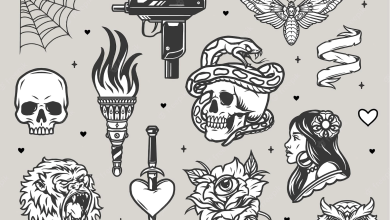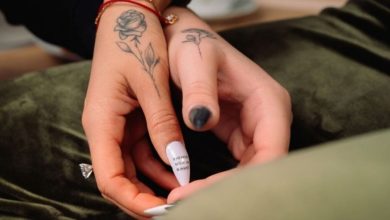See These Interesting Ideas On How To Add A Touch Of Personality To Formal Letters

Phrases like “Just be yourself” simply do not work when you are writing formal letters. These are more than your personal insights into something. Formal letters can be of different types and they may vary in tone and style, but in the majority of cases, these are business or job-related. In cover letters, you are expressing your wishes when it comes to certain positions and hence, you need to have more of your personality involved. This, however, does not mean you can use an informal style or behave unprofessionally whatsoever. On the contrary, here, you will need to employ your language style and language skills to express your personality. For you to even better understand this concept, here are some tips on how to make your formal letters with a dash of personality.
Take Care of Your Tone: Be Confident and Maintain the Conversational Tone
Be careful: conversational, not controversial tone. The use of formal letter templates is also a bad idea. It is fine in situations where you are in a hurry and when you have no time to compose your own; even in these situations, you should make sure to edit it out to be personalized. Have you noticed that the language used in these templates is awkwardly formal and depersonalized? Can you imagine yourself in a situation saying, “To Whom It May Concern” or “It would be my greatest pleasure to meet you up at the earliest convenience”? You perhaps cannot. This is the reason why you should use more of a conversational tone by employing some formal phrases such as “I really appreciate your assistance” or something similar depending on the type of formal letter.
Find Your Own Voice and Add Your Personal Touch
Introspective development and the discovery of one’s own voice are lengthy processes. Perhaps you have wondered what tone is appropriate for a formal letter. In spite of the impersonal tone of official letters, you should always acquire an attitude and an opinion about the contents, since they will likely pertain to you. There are official letters, like cover letters, that need you to provide your thoughts on the topic since doing so might lead to better prospects. Your writing voice is the only window a potential employer will have into who you are as a person. So, it is crucial to keep in mind that your superiors are also people. As a result, it is not only fun but also useful, to leave recognizable traces on paper, like popular address stamp designs or digital signatures. These are the kinds of simple, thoughtful gestures that may have a big impact.
Pick a Focus and Stay As Close As Possible
While writing a formal letter, you must always have a theme in mind. Unfortunately, one of the most typical errors individuals make is deviating from the initial subject. You will need a subject to critically examine in order to build your formal letter-writing personality. Your writing personality and temporary area of emphasis will be determined by your subject. Based on the nature of your company and the format of your formal letter, it is best to concentrate on one specific point and support it from many angles. You will have the flexibility and space to express yourself and incorporate your unique perspective in this manner.
Have Your Voice but Still Sound Professional
First things first, highly formal language and structures, patterns, and forms should be saved up for legal and government documents as well as contracts and proposals. For the rest of the things, everything else is fair game. Once you have positive feedback from the brand or company, you can start experimenting with the voice in your writing. You must demonstrate with your voice while remaining within the bounds of appropriateness. The moment you show yourself to have the highly required critical mind, you may even cross the lines, and your writing will become as interesting as reading.
Fake It Till You Make It
This one is especially important for the cover letters. With this specific form of formal writing, you are trying to sell yourself, i.e. your talents to the people who have never seen you. Because of your tendencies to sound professional and polite, you will most probably risk sounding dry, boring, and overly formal as your letter will be packed with tons of skills, job titles, cliche phrases, and overused words that will just name your previous positions and will say absolutely nothing about you.
But, what if you changed the game, flipped the switch, and pretended your future manager is acquainted with your skills and knows very well how brilliant you are, that you own that position, and that you are the one who has been waiting all this time, and that you are the one who they need? As a matter of fact, if you try to incorporate this technique into your formal writing, your manager will be so interested in you that they would simply like to hear more about you. This is the moment where you can explain all of your inner goals and strivings without sounding pretentious.
No Matter What, Stay Professional
No matter how much you want to express yourself in a positive tone, you should, at any cost, refrain from giving sarcastic and negative comments. Even though sarcasm is something that can be a funny personality trait, you should remember that these letters are addressed to your supervisors and managers. Except for expressing your professional opinion and giving your personal attitudes towards the matter, you should not be so brave as to give remarks which do not have a basis in reality.
Formal letters, just as their very name suggests, are something that should be used for formal interactions. But, because of the tone, most people sound dry and boring. Even though the language should remain formal, for you to add a bit of more personal reflection, there are ways in which you can incorporate your personal opinion, and the safest way is through professional reflection.





